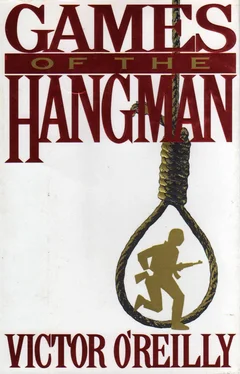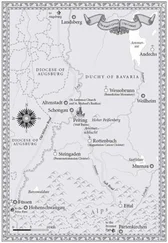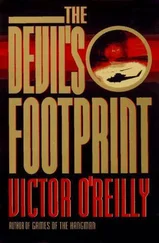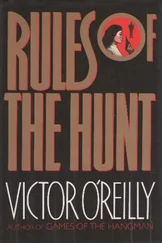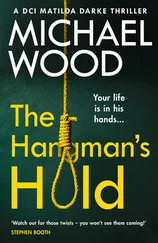Victor O'Reilly - Games of The Hangman
Здесь есть возможность читать онлайн «Victor O'Reilly - Games of The Hangman» весь текст электронной книги совершенно бесплатно (целиком полную версию без сокращений). В некоторых случаях можно слушать аудио, скачать через торрент в формате fb2 и присутствует краткое содержание. Жанр: Триллер, на английском языке. Описание произведения, (предисловие) а так же отзывы посетителей доступны на портале библиотеки ЛибКат.
- Название:Games of The Hangman
- Автор:
- Жанр:
- Год:неизвестен
- ISBN:нет данных
- Рейтинг книги:4 / 5. Голосов: 1
-
Избранное:Добавить в избранное
- Отзывы:
-
Ваша оценка:
- 80
- 1
- 2
- 3
- 4
- 5
Games of The Hangman: краткое содержание, описание и аннотация
Предлагаем к чтению аннотацию, описание, краткое содержание или предисловие (зависит от того, что написал сам автор книги «Games of The Hangman»). Если вы не нашли необходимую информацию о книге — напишите в комментариях, мы постараемся отыскать её.
Games of The Hangman — читать онлайн бесплатно полную книгу (весь текст) целиком
Ниже представлен текст книги, разбитый по страницам. Система сохранения места последней прочитанной страницы, позволяет с удобством читать онлайн бесплатно книгу «Games of The Hangman», без необходимости каждый раз заново искать на чём Вы остановились. Поставьте закладку, и сможете в любой момент перейти на страницу, на которой закончили чтение.
Интервал:
Закладка:
"Father worked for the OSS. He never got around to mentioning to Mother that he had a wife and young son back in the States. When Mother explained that it wasn't the high standard of Swiss wartime cuisine that was thickening her waist, Dad had himself parachuted into Italy, and by all accounts he had a very good war.
"Mother and I were shipped back to Cuba and banished to a small town call Mayari in OrienteProvince. The area has one claim to fame: the biggest hacienda for miles around – it was over ten thousand acres – was owned by a man with a singularly inappropriate name, Angel Castro. He sired seven children, and one of them was Fidel.
"Many people say that they have no interest in politics because no matter who is in power, it seems to make no difference. Life just goes on grinding them down. Well, I can't agree with that view. The Batista government meant a great deal to me. All of a sudden – I was about eight at the time – I had new clothes to wear, shoes on my feet, and there was enough to eat. Mother had a new hairstyle and smelled of perfume. Major Altamir Ventura, the province head of Batista's secret police, had entered our lives. He wore a uniform and had shiny brown boots and smelled of sweat and whiskey and cigars and cologne. When he took off his jacket and draped his belt and holster over the chair, I could see that he had another, smaller pistol tucked into the small of his back."
"How did you feel about your mother at that time?" asked Dr. Paul.
"I didn't hate her then," said Kadar, "and of course, it's pointless to hate her now. At that time I merely despised her. She was stupid and weak – a natural victim. Whatever she did, she seemed to come out second best. She was one of life's losers. She was abandoned by my father. She was treated abominably by her family. She had to scrimp and scrape to make a living, and then she became Ventura's plaything."
"Did you love her?"
"Love, love, love," said Kadar. "What an odd word. It is almost the antithesis of being in control. I don't know whether I loved her or not. Perhaps I did when I was very small. She was all I had. But I grew up quickly."
"Did she love you?"
"I suppose," said Kadar without enthusiasm, "in her own stupid way. She used to have me sleep in her bed."
"Until Major Ventura came along?"
"Yes," said Kadar.
"Was your mother attractive?"
"Attractive?" said Kadar. "Oh, yes, she was attractive. More to the point, she was sensual. She liked to touch and be touched. She always slept naked."
"Did you miss sleeping with your mother?"
"Yes," said Kadar. "I was lonely."
"And you used to cry and cry," said Dr. Paul.
"But nobody knew," said Kadar.
"And you swore never to rely on anybody again."
"Yes," said Kadar.
"But you didn't keep your promise, did you?"
"No," Kadar whispered. "No."
Fitzduane had several hours to kill before he met Guido at the close of the working day at Ringier. He took a train the short distance into the center of Zurich and left his luggage at the central station. He shrugged his camera bag over his shoulder and set off to explore. Wandering around a new city on foot was something he loved to do.
Zurich was as sleek and affluent as he had expected, but to his surprise there were no signs of discord among the banks, the expensive shops, and the high-rise office buildings. At first it looked like a few isolated cases of vandalism. Then he began to notice that the damage, albeit superficial, was widespread. There were clear signs of recent rioting on a substantial scale. Plate glass windows had been cracked and were neatly taped up pending repair. Other windows had been smashed and were boarded up, again in the same painstaking and professional manner. Shards of broken glass glittered from the gutters. Spray-painted graffiti festooned the walls. A church just off Bahnhofstrasse was smeared with red paint as if with gobbets of blood. Under the read streaks were the words EUTHANASIE = RELIGION. On another side street he found two empty tear gas canisters. He bought a map and walked to Dufourstrasse 23.
Ringier was one of the largest publishing houses in Switzerland, and its success showed in the sleek modernism of its headquarters building. The foyer was large and dominated by a bunkerlike reception module; desk hardly seemed the appropriate term. There was a magazine shop built into the ground floor. While Guido was being located, Fitzduane browsed idly through some of the Ringier output. A miniature television camera whirred quietly on its mobile mount, following his movements.
The last time he had seen Guido, the Swiss had been fit and noticeably handsome, with a deep, confident voice and a personality to match. The overall effect was to project credibility, and it was not a misleading impression. Over the years Guido had built up a considerable network of sources and contacts who confided in him with unusual frankness.
This time, as Guido stepped from the elevator, Fitzduane felt a sense of shock and then sadness. He knew that look all too well. Guido's face seemed to have shrunk. It was newly lined and an unhealthy yellow. His eyes were bloodshot and cloudy. He had lost weight. He walked slowly, without his normal vigor of stride. Even his voice had changed. The warmth was still there, but the assurance was lacking, replaced by pain and fatigue. Only his smile was the same.
"It's been a long time, Samurai," he said. He grasped Fitzduane's hand with both of his and shook it warmly. Fitzduane felt a rush of affection but was at a loss for words.
Guido looked at him in silence for a moment; then he spoke. "I had much the same reaction when I looked in my shaving mirror every morning. But you get used to it. Anyway, it won't be long now. I don't want to talk about it. Come on home and tell me all."
The last Batista presidency, as far as Major Ventura was concerned, was an opportunity for both career advancement and the acquisition of serious wealth.
Ventura's ambitions were furthered by the international political climate of the period. The Cold War was at full chill. The Dulles brothers were in charge of the State Department and the CIA, and they did not look kindly on even the hint of communism on their doorstep. Batista's approach to upward mobility mightn't exactly be the
American Way , but at least the son of a bitch couldn't be accused of being a Red.
Within two years Major Ventura was Colonel Ventura and posted back to Havana to become the deputy director of BRAC, the special anti-Communist police. He stopped wearing a uniform and instead dressed in immaculately tailored cream-colored suits cut generously under the left armpit. He was fond of alligator-skin shoes. He took vacations in Switzerland. He investigated, arrested, interrogated, tortured and killed many people who were said to be Communists. He had close working links with the CIA, which was how Kadar met Whitney Reston, the only person Kadar truly loved, and by whom he was seduced.
"We'd been in Havana for a few years," said Kadar. "Ventura still lived with Mother, but he was getting bored with her. He had other women – many other women.
"Whitney worked for a CIA man called Kirkpatrick. He used to come to the house regularly to see Ventura. The CIA had set up BRAC with Batista, and they funded it. They liked to keep an eye on where the money was going. Ventura was their man within BRAC, probably one of many. He was paid a regular monthly retainer by the CIA on top of his BRAC salary and the money he made in other ways. One of his favorite techniques was to arrest someone from a rich family, rough him up a bit, and then have the family buy the prisoner out."
"How did you know all this?"
"Various ways," said Kadar. "The house we lived in was big and old. I had time on my hands – I had made the decision not to have any friends – and I had already discovered that I was smart, really smart. I found if I could get a book on how to do something, I only had to read it a couple of times and I could become proficient in whatever it was. In this way I learned some basic building skills and how to plant microphones and organize spy holes. I stole much of what I needed from BRAC and the CIA. I learned how to tap phones. To tell the truth, it wasn't difficult.
Читать дальшеИнтервал:
Закладка:
Похожие книги на «Games of The Hangman»
Представляем Вашему вниманию похожие книги на «Games of The Hangman» списком для выбора. Мы отобрали схожую по названию и смыслу литературу в надежде предоставить читателям больше вариантов отыскать новые, интересные, ещё непрочитанные произведения.
Обсуждение, отзывы о книге «Games of The Hangman» и просто собственные мнения читателей. Оставьте ваши комментарии, напишите, что Вы думаете о произведении, его смысле или главных героях. Укажите что конкретно понравилось, а что нет, и почему Вы так считаете.
